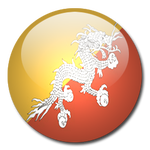International Headteacher
Menu
Population 750,000
Area 38,364 sq km (14,812 sq miles)
Major language Dzongkha
Major religions Buddhism (official), Hinduism
Life expectancy 66 years (men), 70 years (women)
Currency ngultrum
Head of state: King Jigme Khesar Namgyel Wangchuck
Area 38,364 sq km (14,812 sq miles)
Major language Dzongkha
Major religions Buddhism (official), Hinduism
Life expectancy 66 years (men), 70 years (women)
Currency ngultrum
Head of state: King Jigme Khesar Namgyel Wangchuck
|
Bhutan is a tiny and remote kingdom nestling in the Himalayas between its powerful neighbours, India and China. Almost completely cut off for centuries, it has tried to let in some aspects of the outside world while fiercely guarding its ancient traditions.
The Bhutanese name for Bhutan, Druk Yul, means "Land of the Thunder Dragon" and it only began to open up to outsiders in the 1970s. The Wangchuck hereditary monarchy has wielded power since 1907. But Bhutan became a two-party parliamentary democracy after elections in March 2008. Jigme Khesar Namgyel Wangchuck succeeded his father, Jigme Singye Wangchuck, in December 2006 after the former monarch announced his abdication. His predecessor had already given up some of his absolute powers in 1998 and ruled in conjunction with the government, an assembly and a royal advisory council. Tshering Tobgay was elected Bhutan's second prime minister in July 2013, succeeding Jigme Yozer Thinley. He is president of the People's Democratic Party. He was leader of the opposition in the National Assembly from March 2008 to April 2013. He has projected himself as a reformer, rejecting official limousine and prime ministerial accommodation. |
information provided by www.bbcnews.co.uk

